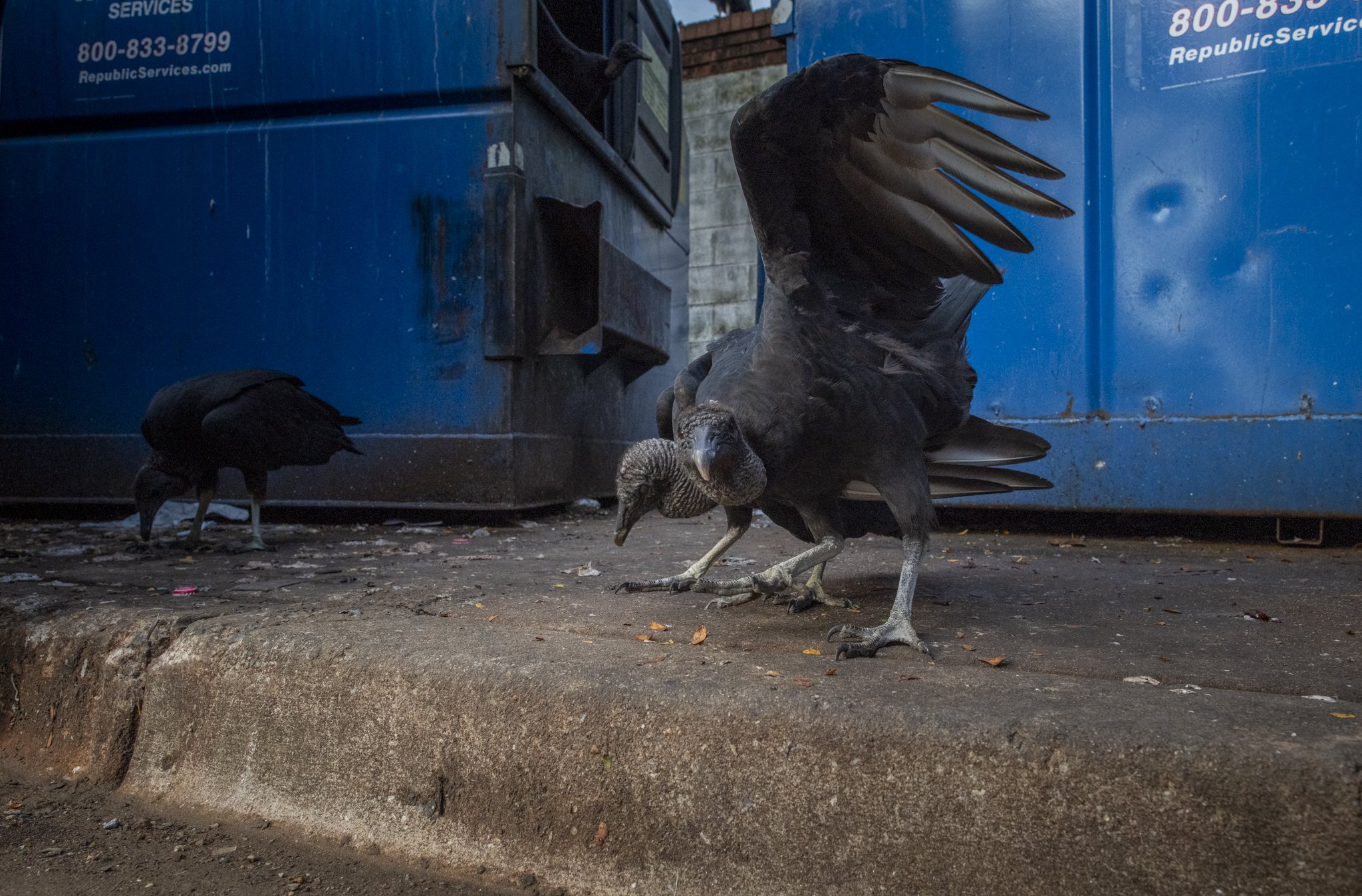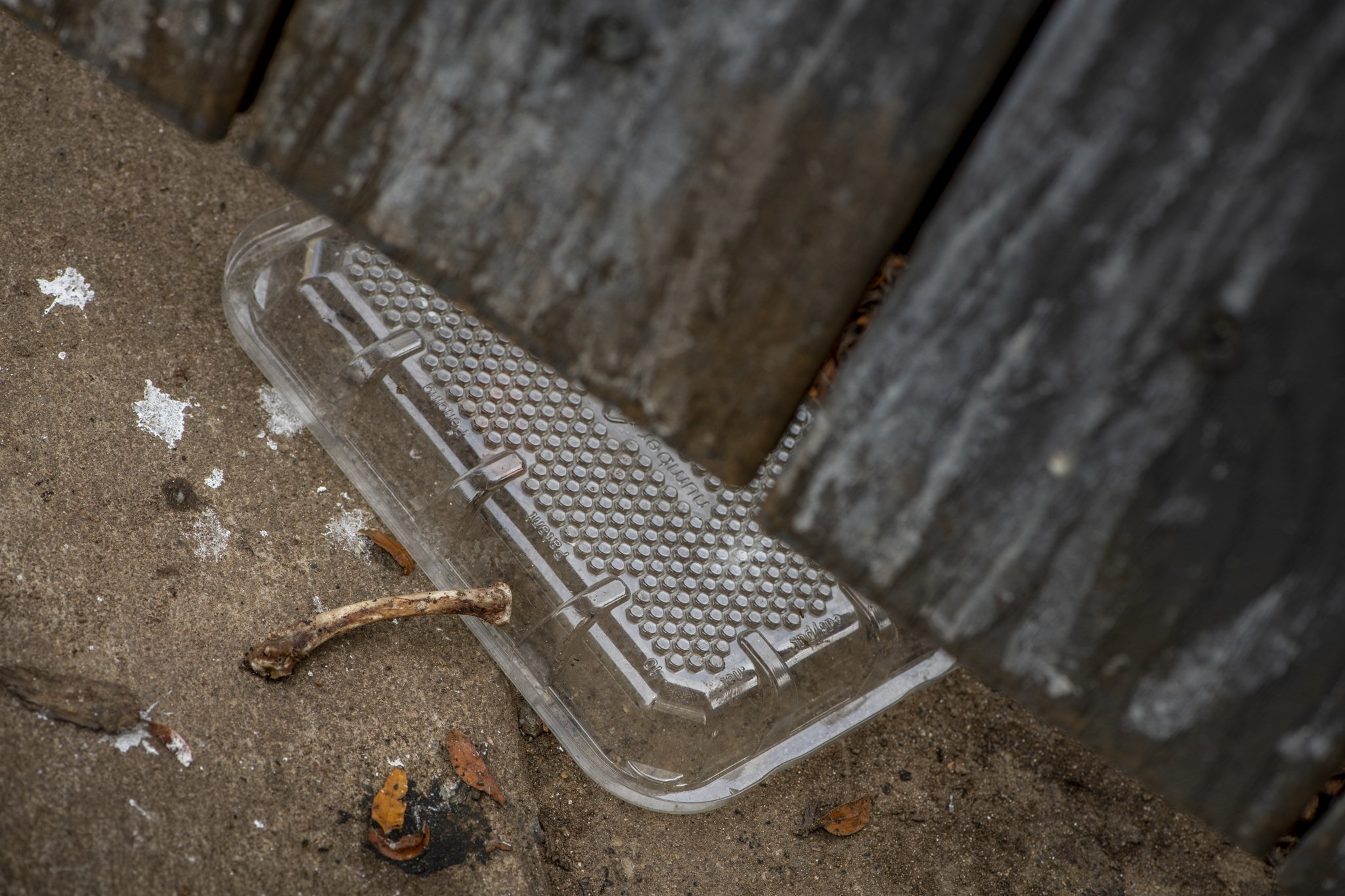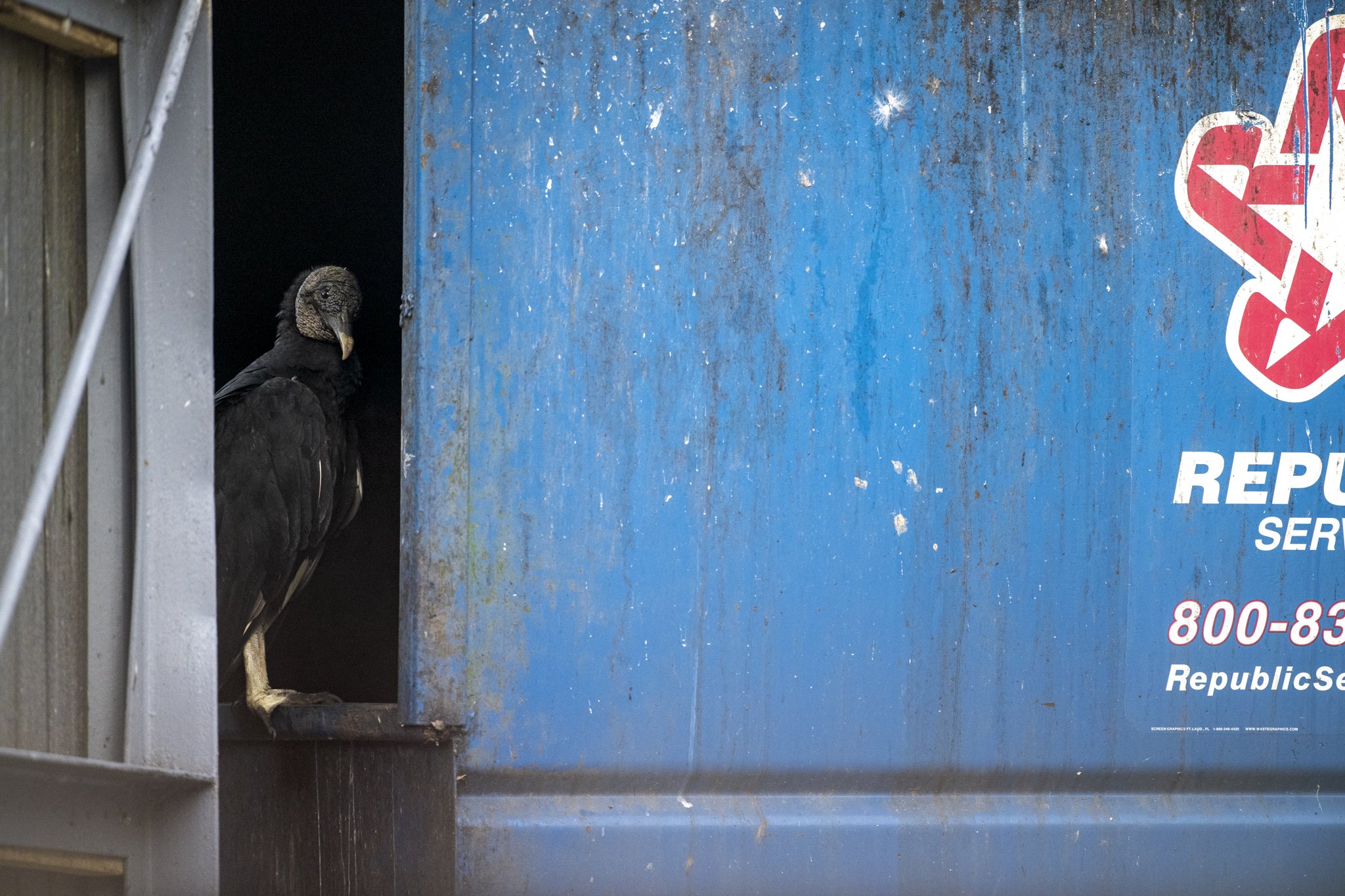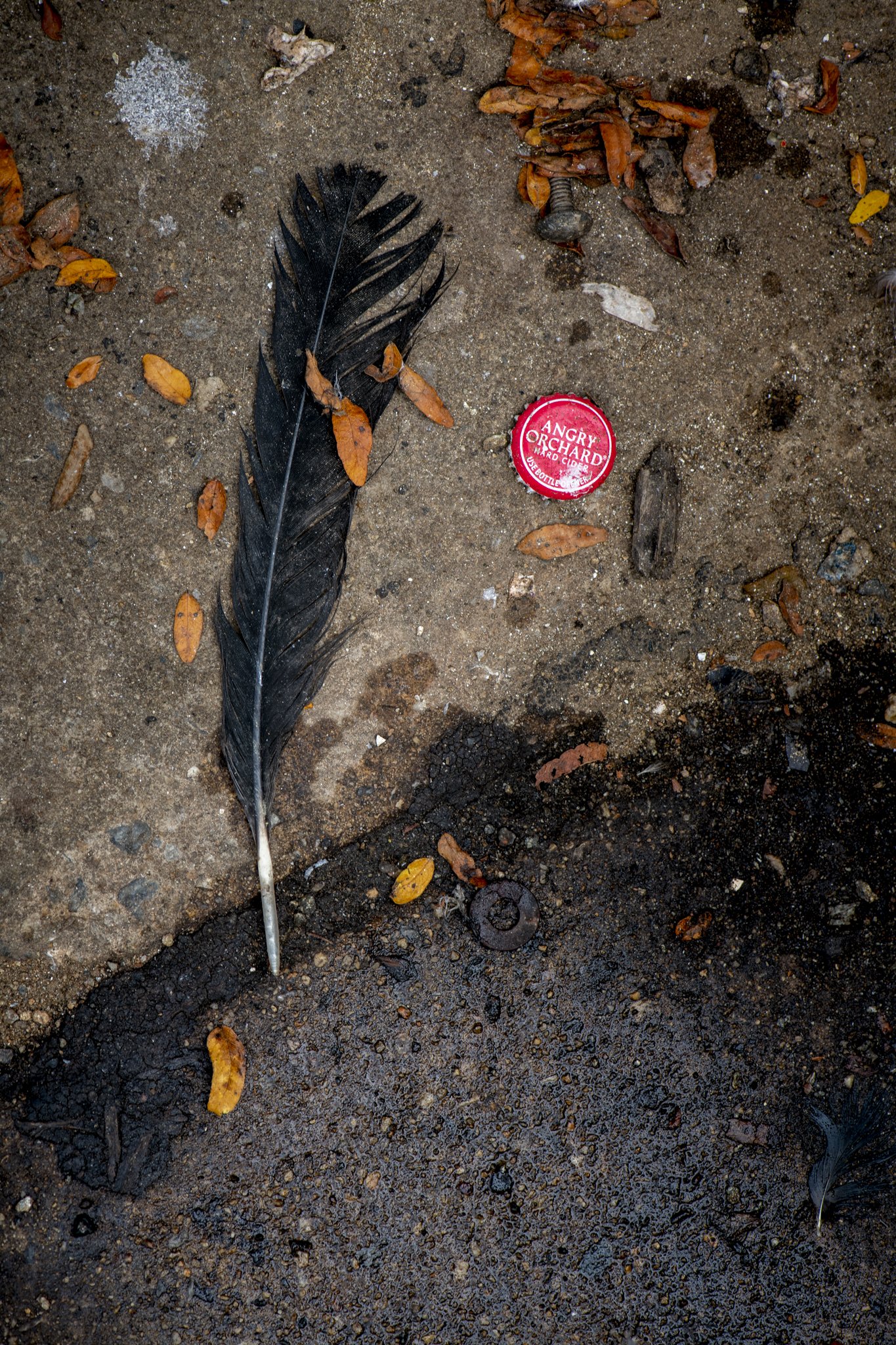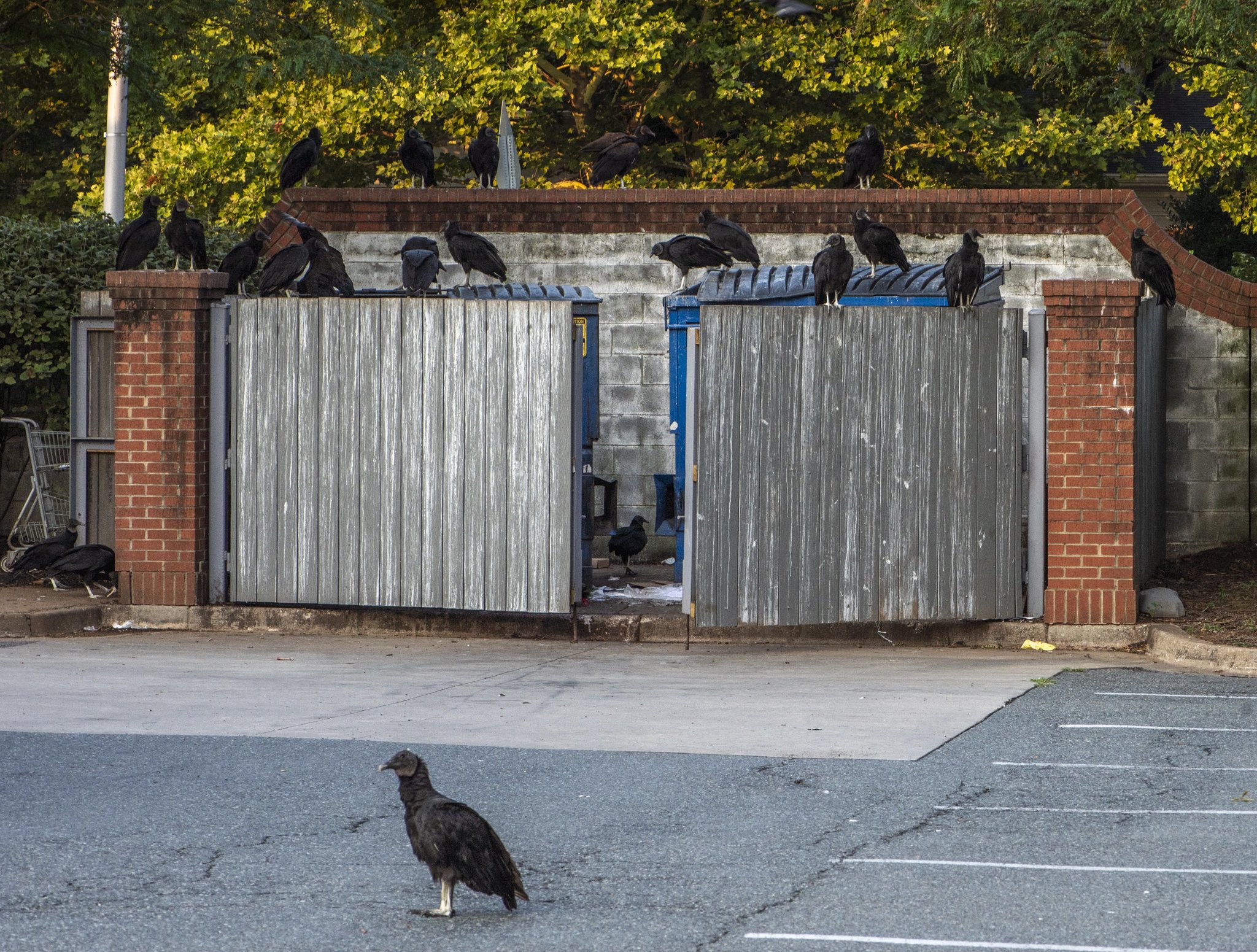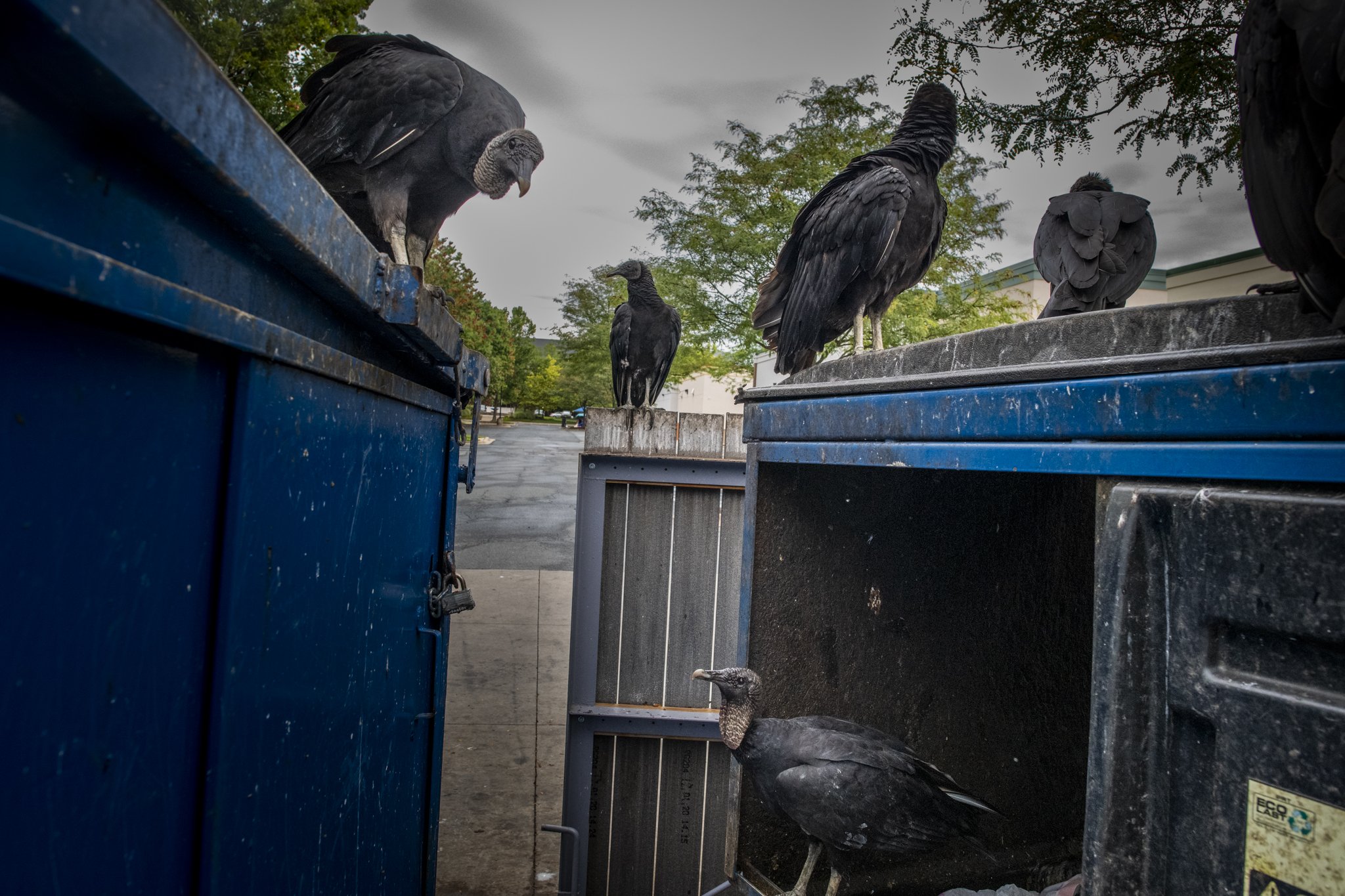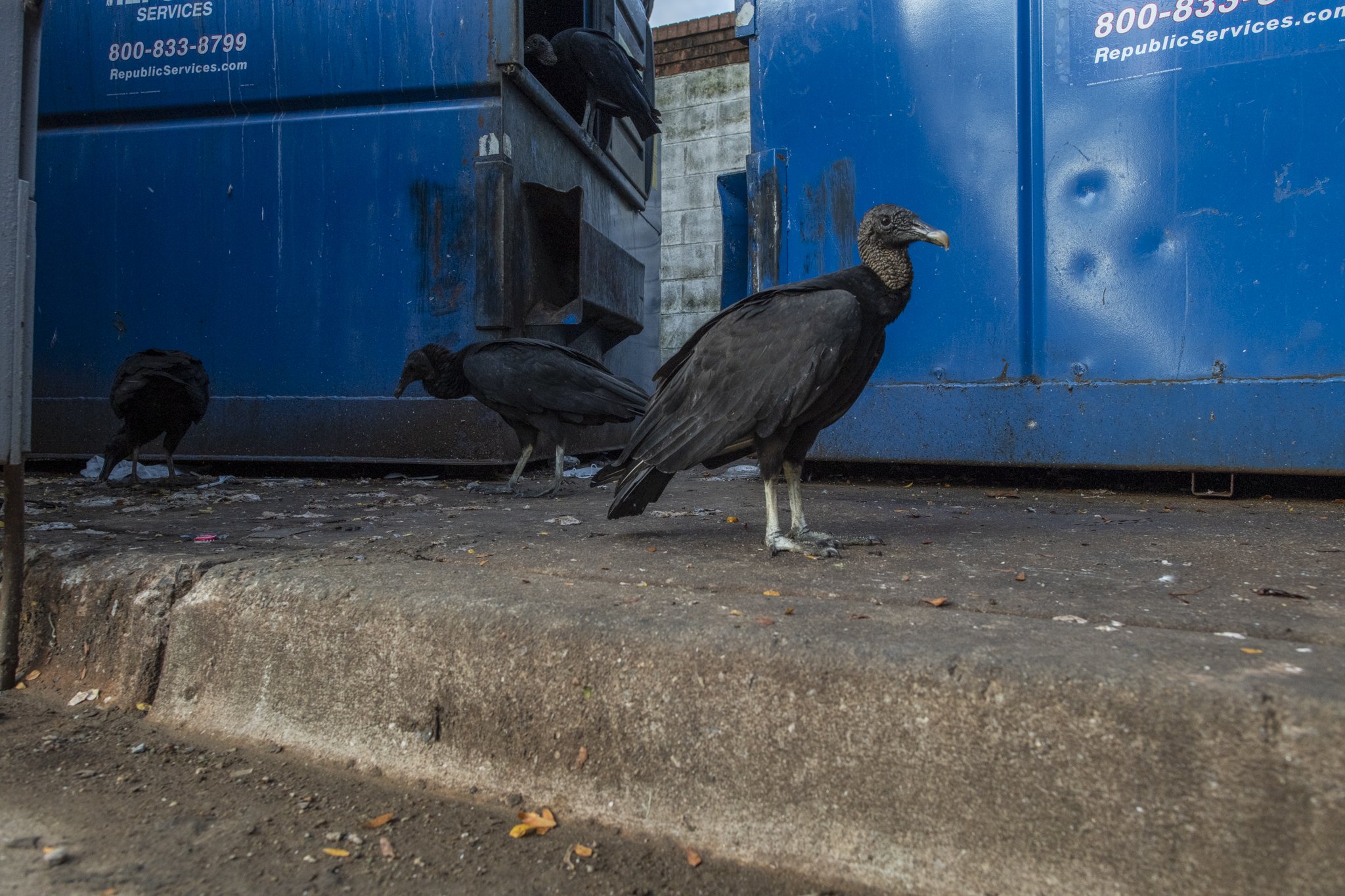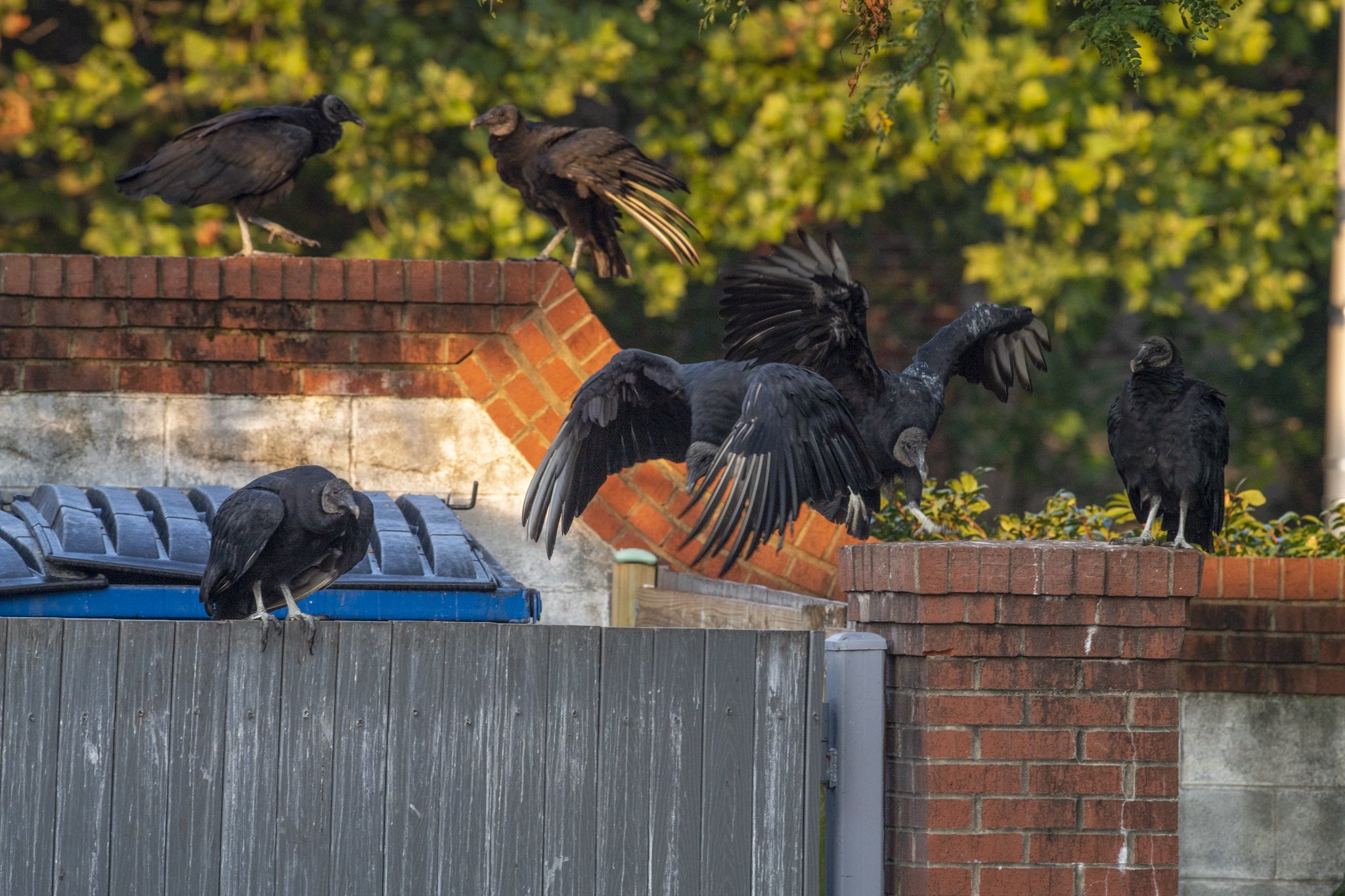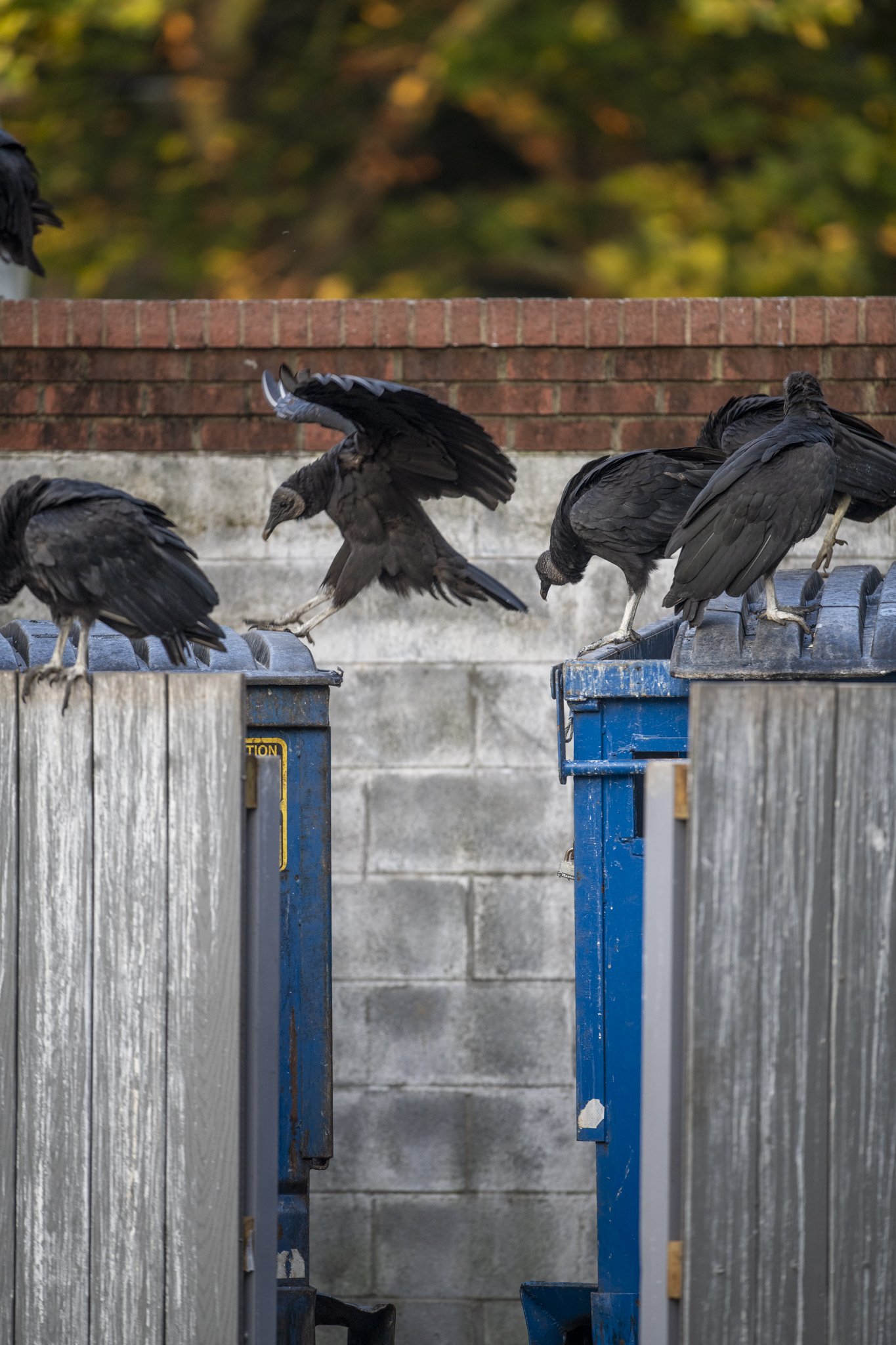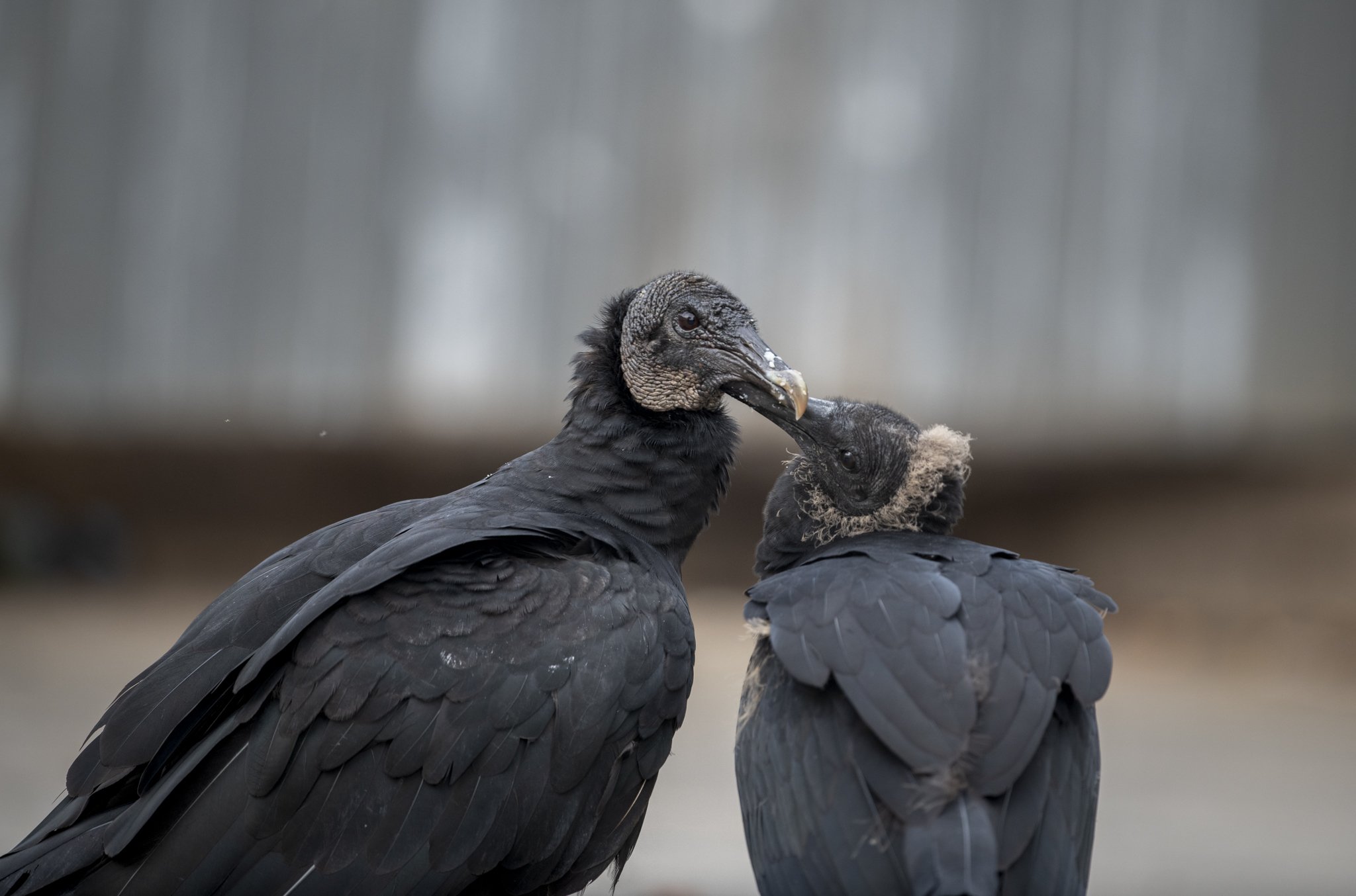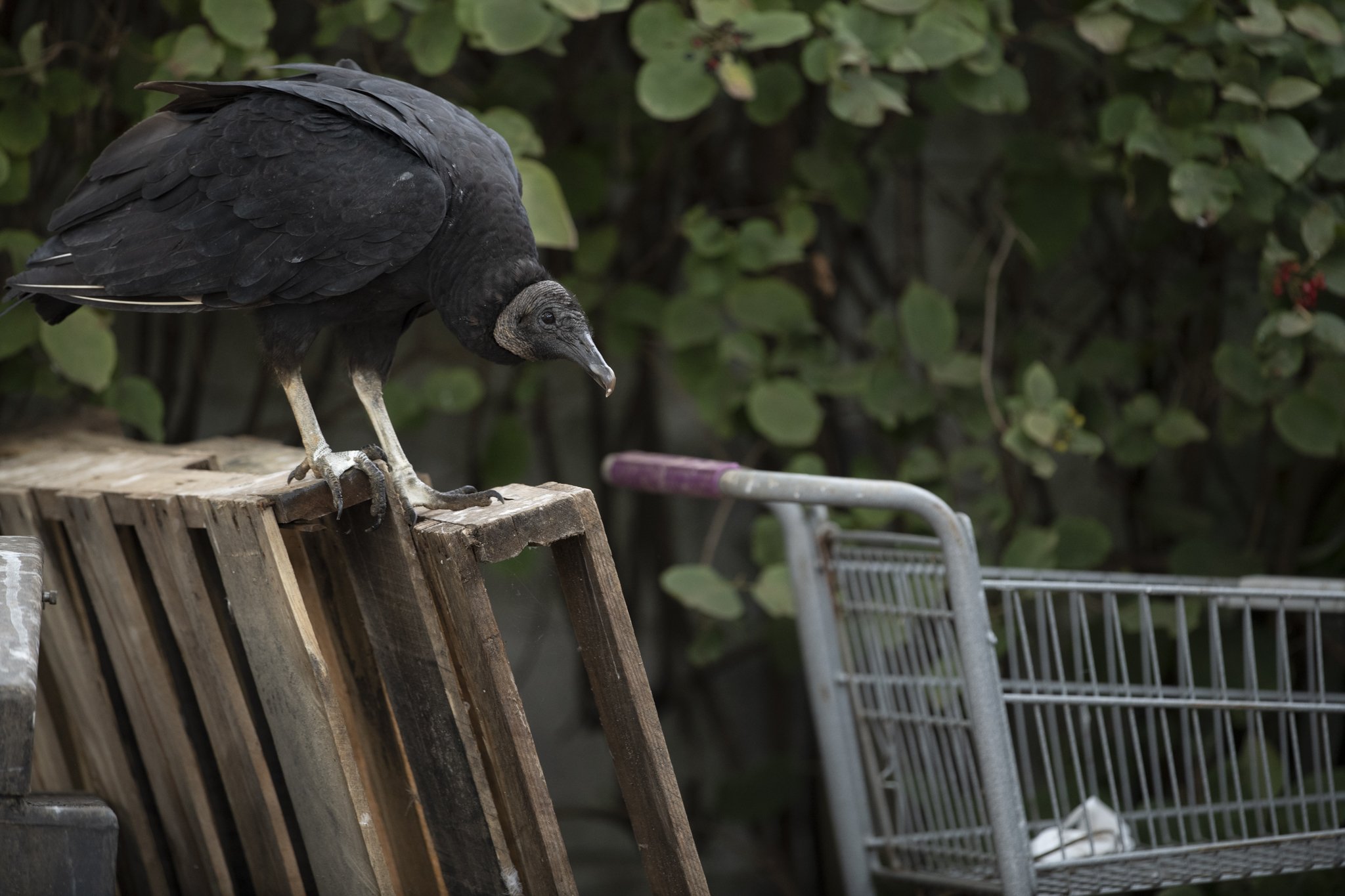The Garbage Committee
Between a Korean fried chicken restaurant, a sushi bar, and a liquor store, unique feathered customers feast. Every morning, a committee of black vultures take over the dumpsters behind a D.C metro strip mall. Here, this highly social committee lives learns and plays in the trash.
As the vultures rip up trash bags and dig into the dumpsters, they spread trash and refuse over the parking lot. How do business owners support the presence of birds while looking out for their bottom line? Are these birds welcome roommates or a nuisance to be dealt with? Can businesses and scavengers coexist, or are the vulture's habits setting them up for a negative confrontation that will end up forcing them out of this haven of trash?
When thinking “cute,” vultures don’t come to mind; they’re smelly, awkward, and dangerously misunderstood. As scavengers, Vultures are a source of natural waste management. To their detriment, trash and carrion can contain lead poison, rodenticides, or could be located on roads leading to car strikes.
Making matters worse, vultures are villainized due to the unappetizing nature of their work. It’s a perception that is a threat to humans and vultures alike because, without their crucial waste management, rotting flesh and organic trash abound.
Vultures evolved to consume carcasses and scraps that are left behind. In an environment curated by humans, Vultures don’t often find their natural food sources. Which leads to dumpster diving.
The committee I’ve followed demonstrates the fine (and risky) line vultures navigate as they perform the job they’ve evolved to fill with the garbage we’ve left for them to clean.
In following this resourceful committee, my images reveal that these birds are curious, lead highly social lives, and even play with their surroundings. The raptors display an under-appreciated personality and complexity, but the threat to their health remains.
From a conservation standpoint, Vultures have a major PR problem. This story helps to correct the negative stereotype of vultures in our shared environments. Once societies’ perception of vultures as villains begins to change, vultures can be seen as birds with complex social dynamics, and values.
